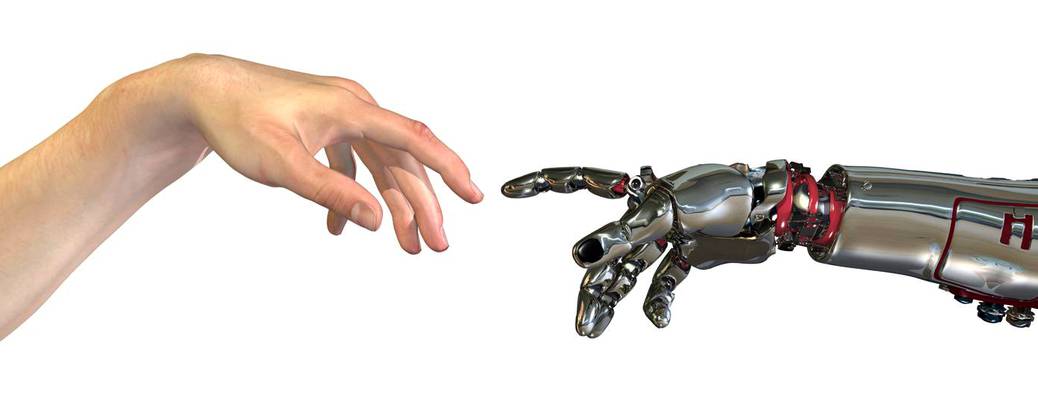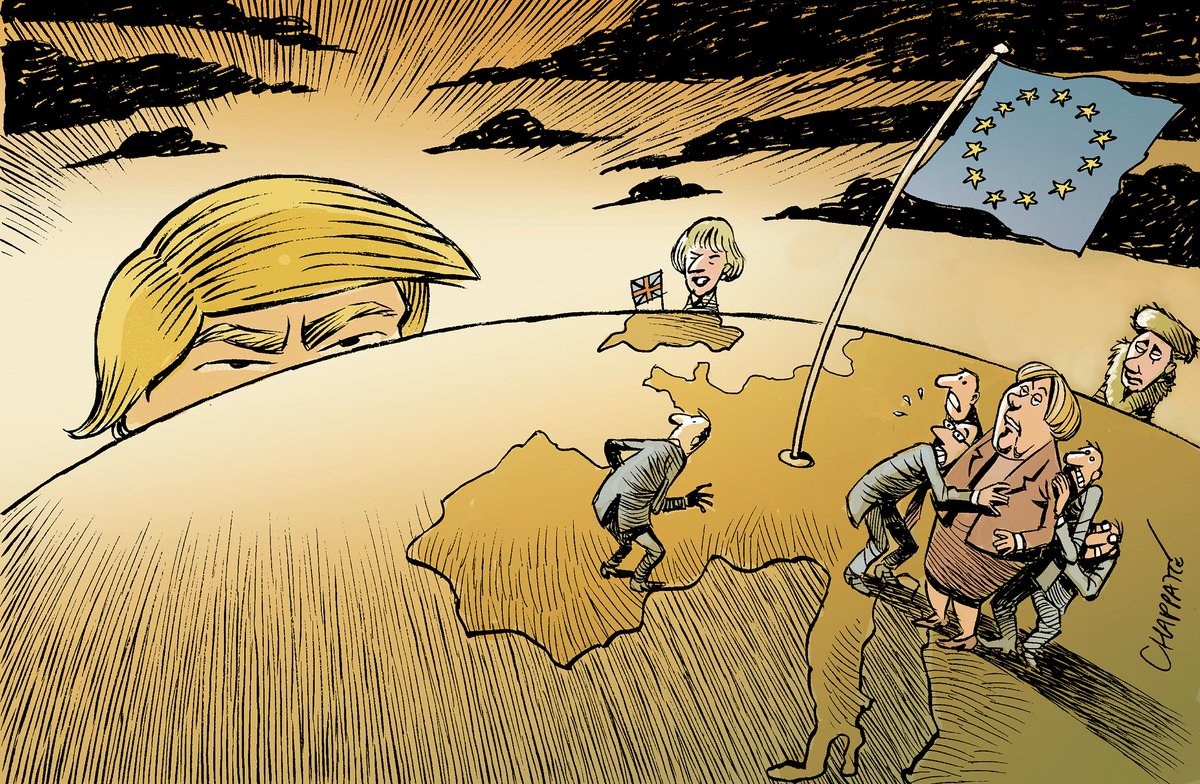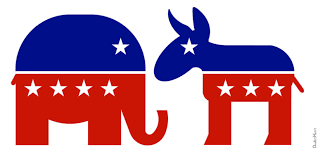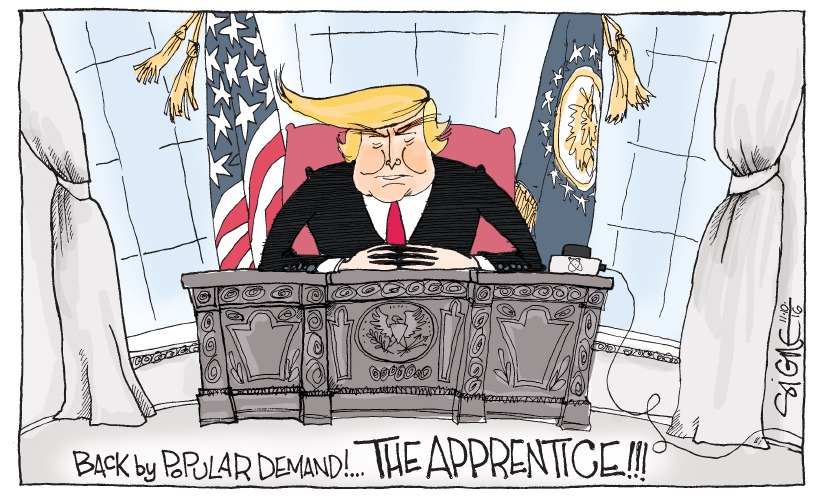Rob's Flash Messages
Rob's Stories
Humans and Robots
 I recently came across the work of photographer Frans Steiner, obviously a man inspired by the beauty of people. Nevertheless, as the collage image of one of his series shows, obviously he is, just like me, wondering about the co-existence of humans and their evolutionary successors: intelligent artificial humanoids. The description of latter species already implies three major obstacles:
I recently came across the work of photographer Frans Steiner, obviously a man inspired by the beauty of people. Nevertheless, as the collage image of one of his series shows, obviously he is, just like me, wondering about the co-existence of humans and their evolutionary successors: intelligent artificial humanoids. The description of latter species already implies three major obstacles:
- Intelligent, they obvioulsy "think like us". At least it means that their IQ matches or exceeds human level. Future robots communicate, act and play on a level comparable to humans. It's difficult to predict if the current generations will ever acknowledge intelligence brighter than their own. Humanity can not stop the development of it because it's a technological evolution emerged a long time ago and today we already count on it with our Tesla's, Google Search, Siri and medical robots. However, discussions about the "soul" of machines will make the acceptance even more awkward because, although the concrete intelligence of a robot might be superior, their conclusions about human matters will always be questioned;
- Artificial, they are "made by us". So we have designed and produced them in our studios and factories as opposed to having them grown in the belly of another human or maybe a petri dish. Humans tend to draw a strict line between "human grown" and "human made". We obviously already have forgotten that that line is already crossed many years ago with the acceptance of all sorts of medical tricks from artificial insemination until keeping humans alive anyway, let alone the replacement of human parts from hips, lungs, hearts, eyes, ears, kidneys, limps and sooner or later connections to our cognitive skills and abilities, say artificial parts of our brain. As a deaf person, I'm following the development of cochlear implants or direct brain connections closely and for me, these "brain improvements" can not come fast enough;
- Humanoid, they "look like us". Altough human resemblance is not mandatory for an intelligent robot, it helps to blend them into human environments which are after all shaped by humans for their own convenience.
YAM's
 As you probably know already, I consider "new" methods like SCRUM a YAM, a Yet-Another-Method. And there are a lot of YAM's. Like potatoes they are root-vegs and you can find them everywhere in any vegetable shop. Very versatile and you can bbq, bake, smoke, boil, fry, grill or even eat them raw with the right recipes. Some have other bumps and dents but at the end of the day, they all taste more or less alike.
As you probably know already, I consider "new" methods like SCRUM a YAM, a Yet-Another-Method. And there are a lot of YAM's. Like potatoes they are root-vegs and you can find them everywhere in any vegetable shop. Very versatile and you can bbq, bake, smoke, boil, fry, grill or even eat them raw with the right recipes. Some have other bumps and dents but at the end of the day, they all taste more or less alike.
Well, coming back to earth, you know that a YAM, the Yet-Another-Method and not the vegetable, in the Application Development context is a box stuffed with techniques and tools of which probably most of the time more than 80% are "borrowed" from earlier emerged YAM's. Perhaps with another footprint or selection, other tools, given other names and acronyms, put in another context or changed just slightly enough to make them (false) distinct. There is a complete industry around YAM's and tools (YAT's ???) and many vendors make a living of it. I have nothing against that, it drives professional innovation but it make the life of the humble IT-professional a bit awkward.
SCRUM in my view is just another representation of other agile YAM's like IAD, DSDM, Lean Development, XP, RAD, Essential UP, SMART, DevOps and I am sure I missed a few dozen others. Sometimes it's even a bit embarrassing to see people so excited about "new" methods like SCRUM or DevOps. I can only hope that the "SCRUM-Masters" have enough knowledge and experience to learn from the past and look over the SCRUM-fence, But to give all the original YAM-inventors some credit, every YAM is usually based on some very good and new ideas to improve our profession indeed. Sometimes a YAM is just connected to a tool of the same vendor to create a complete (lock-in) package. But obviously, in an attempt to deliver a full size and complete new method, the "borrowing" from others is unavoidable.
Yes, agile projects have sprints, iterations, time-boxes or what ever you call them. A short period of time with a working and implemented piece of software at the end with real business value. And yes, that forces to use other workflows, techniques and sometimes tools than we are used to in a waterfall environment. But no, actually there shouldn't be anything against using good "agile techniques" like workshops, standup meetings, backlogs and the like in any kind of project. And to be honest, they have been used in all sorts of linear projects for decades. Conversely, still looking at any agile method like SCRUM as a YAM, lots of the (intermediate) deliverables in agile are quite similar to those in linear ones. Maybe a different presentation but it's not another planet. We're still building and implementing IT applications.
So then, what are the real differentiators between agile and a linear projects?
Leaders
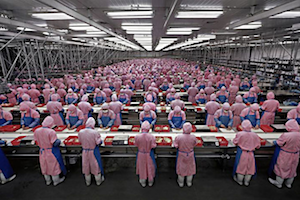 With some embarrassing voting behind us and a few others to come soon, it's interesting to watch why the populists (with a small "p") among others in the UK, US, the Netherlands and a few other countries have won or will win and lose their widespread support probably slowly afterwards.
With some embarrassing voting behind us and a few others to come soon, it's interesting to watch why the populists (with a small "p") among others in the UK, US, the Netherlands and a few other countries have won or will win and lose their widespread support probably slowly afterwards.
Firstly, they all dismiss and insult the current establishment. However the "establishment" is more than a handfull of politicians. Hundreds of thousands if not millions of hard working people are part of it too and tearing the establishment apart will certainly touch many gov jobs and probably not in a good way. That does not mean the current governments do not need some renewal but simply insulting all those people is not the way forward.
Secondly, they all claim to "bring back jobs which were stolen by the Asians, Eastern Europeans and Mexicans". However, this will prove to be completely impossible because the only way you can do that is changing the country into ... "China". Already a lot of jobs in western countries are taken by foreign workers simply because obviously the own population does not want them. Additionally, the to Asia outsourced jobs are not paid very well compared to own standards so again, either the own people do not want those jobs or they accept to pay more for the more expensive goods they produce themselves.
Thirdly, they all claim also to "create jobs".
I am scared
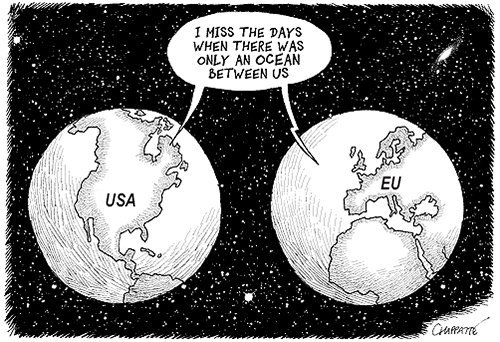 Some people might wonder why I target Trump so much as I am not even American. Well, to some extend I have surprised myself with it too. I guess the main reason is that the direct and personal influence of the biggest economic and military nation on this planet now hits me too hard in a bad way. The turmoil in the US (and UK) directly affects my savings and investments and furthermore it disturbs the political landscape I felt reasonable safe in with topics like climate, NATO, ICC, UN, Russia, Iran, North Korea and a few more.
Some people might wonder why I target Trump so much as I am not even American. Well, to some extend I have surprised myself with it too. I guess the main reason is that the direct and personal influence of the biggest economic and military nation on this planet now hits me too hard in a bad way. The turmoil in the US (and UK) directly affects my savings and investments and furthermore it disturbs the political landscape I felt reasonable safe in with topics like climate, NATO, ICC, UN, Russia, Iran, North Korea and a few more.
So after some long thoughts and digging deep into myself, something popped up I thought a had stashed away thoroughly but obviously not. I am just scared. I got more scared about my life and my future because I thought there was a trutsworthy and unbreakable bond between the old allies US, UK and (the rest of the) EU. Obviously not. I know, in any relationship some sacrifices have to be made but today I only hear the US and UK talk about their own priorities. On top of that, any decency and respect seem to be lost. When I hear Donald Trump or Boris Johnson talking, recently quite a few American senators, the speech of Brett Kavanaugh and of course in Europe Geert Wilders, Marine Le Pen and Recep Tayyip Erdogan I believe humanity has taken quite a few steps backwards.
Page 4 of 6
